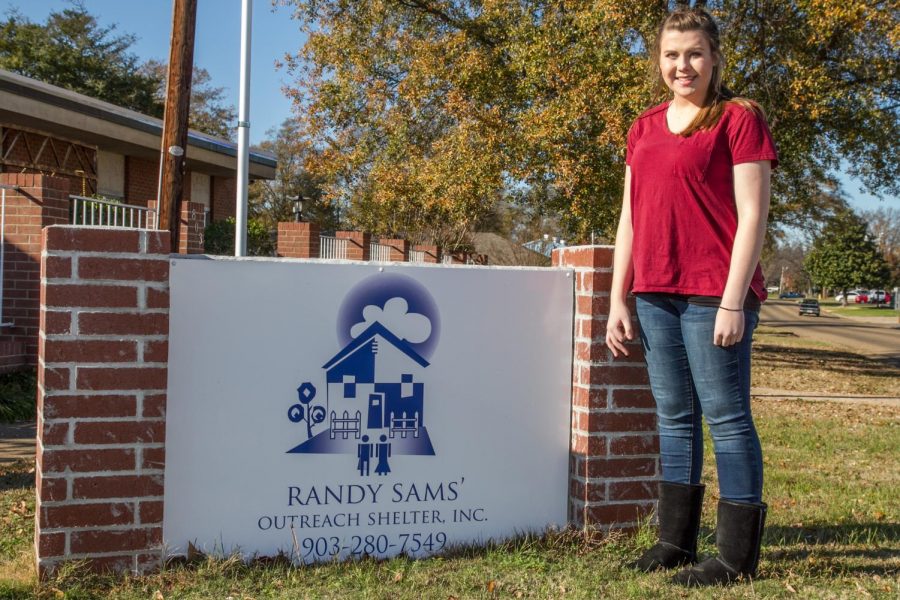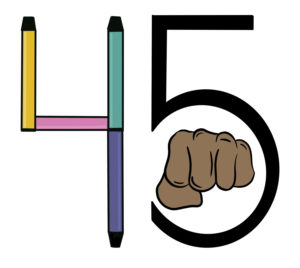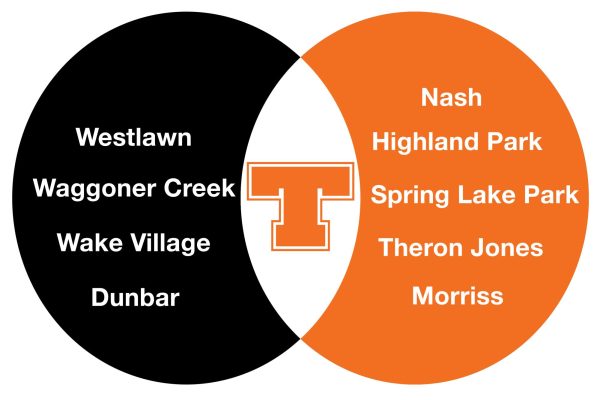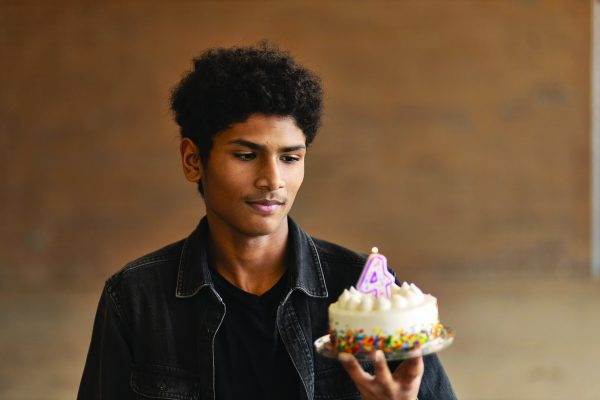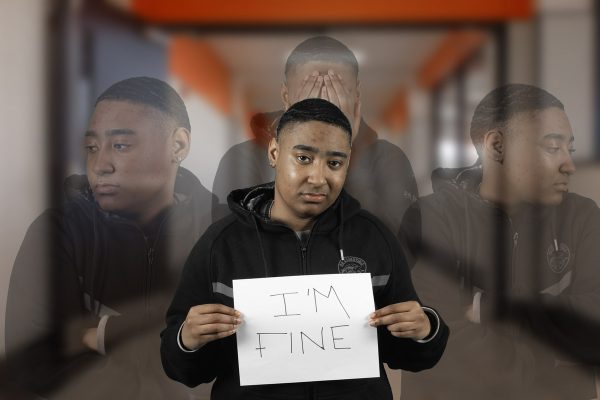A condition in rough conditions
Student teaches from struggle with diabetes
Senior Celeste Anderson devotes time to teach and inform the residents of Randy Sams Outreach Shelter about diabetes.
December 21, 2017
Walking into Randy Sams, it’s almost impossible not to see someone nod his head toward me or give me a warm, welcoming smile. The residents pile toward the front of the shelter, eager to see what the entertaining lesson of the night holds. But this lesson is different. It is not teaching residents how to apply for a job, how to build their resume or even about buying an apartment.
My first visit to Randy Sams was nerve wracking. I wasn’t used to talking to a couple people at once, much less a whole shelter full. I smiled at both the skeptical and excited faces as I started the “lesson”: a diabetes education class.
Most people don’t realize the work, determination and expense that goes into managing this disease. Even worse, others brush it off as a non serious disease. ‘They did it to themselves,’ I hear them say. ‘Maybe if they hadn’t eaten so much junk.’ ‘Why am I supposed to feel bad for someone who didn’t take care of themselves in the first place.’ These people are all wrong. Terribly and horribly wrong. Most of the time, diabetes is caused by genetic and environmental factors, with a small percentage based on lifestyle choices, such as unhealthy eating, but this is only prevalent in one type.
There are two different types of diabetes: type 1 and type 2. Type 1 diabetes is usually diagnosed in children and has no bearing whatsoever on what the person ate or how he took care of himself. It strikes at random times to random people, and it is non preventable and non curable. I’m entirely sure that a two-month-old baby did not get type 1 diabetes from eating too much fried chicken. Type 2 diabetes generally strikes adults and most often relies on genetics or whether there have been previous cases in the familial line. This type is also caused by diet and exercise, but I repeat that this is not the sole reason.
I started a small group for shelter residents who have diabetes, are interested in diabetes or who want to help their diabetic friends. We talk to each other and learn from each other. We share our experience. We support each other.
— Celeste Anderson
Because of the misinformation and the lack of care, some residents, specifically the diabetics at the shelter, find themselves lost. Additionally, many are so focused on basic survival that their health takes a back seat, and their lives are in peril. To counteract this problem, I started a small group for shelter residents who have diabetes, are interested in diabetes or who want to help their diabetic friends. We talk to each other and learn from each other. We share our experience. We support each other. I also take this time to ask the group if they’ve heard something about diabetes that they wanted to make sure was factual.
Unfortunately, not all group meetings have positive stories. There have been people who have lost their feet because of diabetic complications, or worse, their lives. There are people who don’t know what type of diabetes they have, which is of paramount importance in insulin and medication. There are people who have been to the hospital because of complications many times and are told not to come back simply because they are homeless.
When I say that I learn from the residents, I am truly being honest. They make me grateful for all that I have, including insurance to cover the extreme costs of diabetes. My small group also puts me back in my place.
As we all do, I sometimes get caught in the material things of life, such as wanting a new laptop or nice clothes. However, the residents of the shelter often pull me back to earth in terms of what’s important and what’s not. Because of them, I go to sleep at night thankful for the people and health that I have rather than bitter about what I don’t have.


